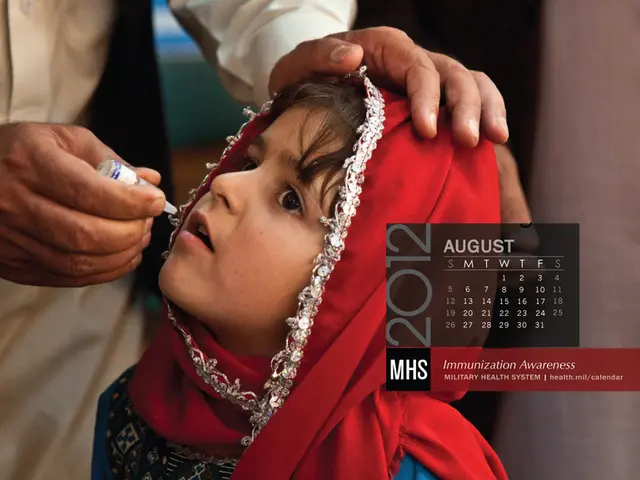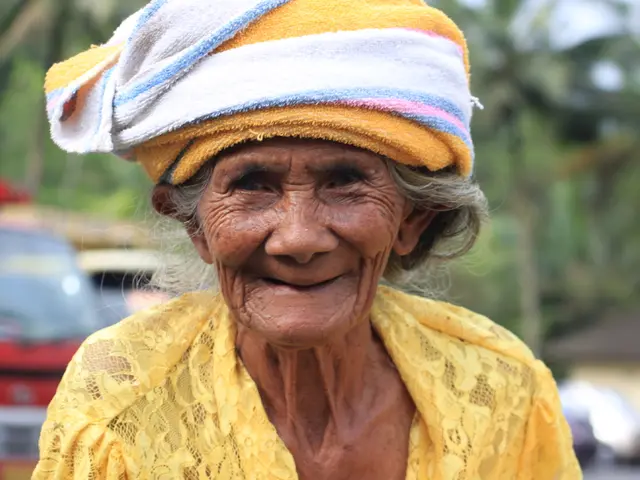Governmentose to Ban Traditional food and Alcohol at Sports Events
Hot Weather Ahead: A Guide for Athletes
Brace yourselves, sports enthusiasts! This upcoming summer is shaping up to be a scorcher, and it's essential to prioritize health and safety, especially for athletes. The German Federal Ministry of Health has introduced a plan to aid athletes in tackling the heat, taking into account the projected record-breaking temperatures for the summer of 2025.
The main goal is to minimize health issues during heatwaves. German authorities discussed this in Berlin, stressing the heightened risks athletes face due to climate change. According to the World Health Organization (WHO), athletes are particularly susceptible to heat-related health hazards in the changing climate.
Weathering the Heat: Tips and Recommendations
To ensure sports can be enjoyed during high temperatures, the heat protection plan advises several strategies. Sports facilities should supply abundant cold drinking water and establish shaded rest areas for cooling off. Behavioral tips ensure athletes can perform their best in extreme heat, but the plan also recommends certain precautions. For instance, the plan advises avoiding alcoholic and caffeinated beverages and open-flame cooking areas like grills during extreme heat conditions.
The heat protection plan serves as a guide rather than a set of regulations. It's essential to adapt these recommendations to specific competitions and events, with clear guidelines on when heat conditions warrant interruptions or modifications.
The concrete steps to implement the heat measures remain the responsibility of the federal states and municipalities. Recent studies by the Robert Koch Institute suggest there were around 3,000 heat-related deaths annually in Germany between 2023 and 2024, with even more fatalities in 2022. Given the meteorologists' predictions for a hot summer this year, it's crucial to remain vigilant and prepared.
In the face of increasing global warming and significant heat days, former health minister Karl Lauterbach (SPD) presented a national heat protection plan for health in June 2023. This has since evolved into a model plan for recreational sports in collaboration with the German Olympic Sports Confederation. Moreover, heat protection plans for pharmacies and outpatient psychiatric practices have also been published.
Staying Healthy in the Heat
It's crucial for athletes to prioritize hydration and maintain electrolyte balance to combat dehydration and heat-related illnesses. Adjust training and competition schedules to avoid peak heat hours, typically between 11 AM and 3 PM. Use cooling methods like cold towels, ice vests, or cooling centers to reduce body temperature, and wear lightweight, light-colored, loose-fitting clothing to stay cool. Regularly monitor athletes' health for signs of heat stress or heatstroke, such as dizziness, nausea, or headaches.
As the climate continues to change, sports organizations should develop strategies to adapt to these changes, ensuring the health and safety of all athletes. By staying informed and adhering to guidelines, we can navigate the heat together and continue enjoying our favorite sports!
- In light of the predicted record-breaking temperatures for the summer of 2025, it's essential for athletes to pay attention to health-and-wellness precautions during the upcoming heatwave, as advocated by the heat protection plan introduced by the German Federal Ministry of Health.
- To safeguard health, athletes should prioritize science-backed strategies such as maintaining electrolyte balance, adjusting training schedules, using cooling methods, and wearing appropriate clothing, while staying informed about heat-related health hazards in the context of climate change within the health-and-wellness and sports communities.








